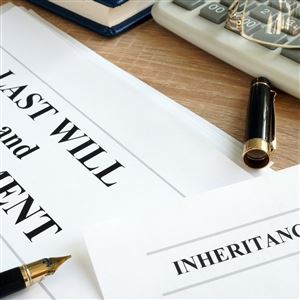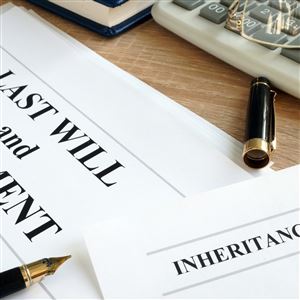We’ve had numerous clients come to us in many planning situations; contemplative, financial, Medicaid/Nursing home crisis and various points in between. In trying to assist these individuals in their planning, a not uncommon concern is the house in which they reside.
The house often is of paramount importance, not only for a married couple, but for one living alone in that house.
Not uncommonly, the parent who owns the house expresses a desire to add the name of a child or children or a non-related party (although this is rare) to the deed. This can be fraught with many issues.
When a married couple owns the home, if it is not in a trust, the common form of ownership is “tenants by the entireties” — a title unique to a married couple. Tenancy by the Entirety is a type of concurrent estate in real property that occurs when the owners of the property are married.
In essence, each spouse mutually owns the entire house. When one spouse dies, the full title of the property automatically passes to the surviving spouse. Pretty simple, eh.
Let’s concentrate on a single parent, Fred, who wants to add a favored adult child (Sue) to the deed. Now we may have a problem or two under the rule of unintended consequences.
Depending upon how Sue’s name was added, which most commonly is as a “Joint Tenant with Right of Survivorship” (JTWROS), a gift of half the value of the house has been transferred to Sue. And that may be OK if Sue is the only child of Fred. Note that when one of the two parties on the deed dies — usually the parent first — the other inherits the whole house.
But what if there are multiple children? If Fred wanted the property to pass to his heirs, there is now a problem.
Let’s assume Fred has a will and, under the will, he wanted to share all his assets equally between all of his children. For instance, Fred has three children and each has children of their own. Fred might want each of his kids’s share of the property to pass on to their own children.
Problem! You bet! Why? Well, Fred, at death, has the house, by title, go to Sue, which most likely will lead to an unequal sharing of Fred’s total assets.
A very real potential for wild sibling friction at his death. This friction could also ignite immediately upon the siblings becoming aware of Sue being placed on the deed for no discernible, acceptable reason. A discussion of a good reason such as Sue being a caregiver child to Fred might be much more palatable to the other siblings.
In addition, Sue may, for whatever reason, want to sell her one-half ownership interest in the house, perhaps even without Fred knowing about the sale.
How about when/if Sue gets divorced? The house could be considered a marital asset and be subject to distribution in the divorce. Yuk! Sue also might be a spendthrift and creditors could also come after their interest in the house. Again, a situation for an unhappy parent.
Now, one also must consider certain tax consequences. Fred dies owning the house in his name alone. Sue inherits the house at the then market value of the house; called a “step-up in basis.”
If Sue is added to the deed, her cost basis stays at what Fred originally paid for the house which may have occurred many years before. Then, if Sue wants to sell the house, she could be subject to significant capital gains taxes.
Some parents — particularly those who may not be in the best of health — might think that by giving an interest in the house to their child or children, they can qualify for Medical Assistance for skilled nursing care more quickly while still keeping the house in the family.
They may not be aware of the “five-year look-back period” for uncompensated transfers (“gifts”) that the parent has made. Assume the one-half interest in the house was worth $145,000. That’s 10 months of potential Pennsylvania Medical Assistance ineligibility if nursing home care was needed within that five-year lookback period which the parent might have to pay for out-of-pocket.
So, if you are the parent or the child (but, especially the parent), give thoughtful consideration as to dealing with this issue. And don’t do it without consulting a knowledgeable accountant and attorney. Giver beware!
Julian Gray and Frank Petrich are certified elder law attorneys who practice in the Pittsburgh area at Gray Elder Law. Send questions to elderlawguys@grayelderlaw.com or visit grayelderlaw.com.
First Published: October 24, 2022, 10:00 a.m.




















